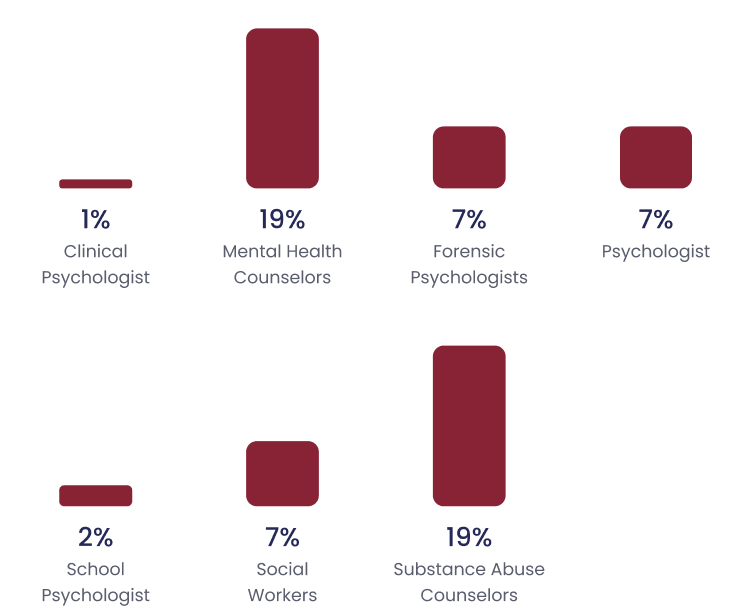Education and Degree Paths in Psychology
Undergraduate Psychology Programs
- Introduction to Psychology
- Developmental Psychology
- Social Psychology
- Cognitive Psychology
- Human Resources Specialist
- Market Research Analyst
- Social Service Coordinator
Graduate Psychology Programs
A master’s in psychology deepens your expertise and opens doors to more specialized roles. Programs usually take 2-3 years to complete and often require a thesis or capstone project.
- Clinical Psychology
- Industrial-Organizational Psychology
- School Psychology
- School Counselor
- Behavior Analyst
- Human Factors Specialist
Doctoral Psychology Programs
Doctoral degrees represent the highest level of education in psychology. You can choose between a Ph.D. (research-focused) or Psy.D. (practice-focused) program.
- Advanced coursework
- Comprehensive exams
- Dissertation or doctoral project
- Supervised clinical experience
- Clinical Psychologist
- Neuropsychologist
- Psychology Professor
Find Your Online Psychology Program
Key Areas of Specialization
Clinical Psychology
Clinical psychology focuses on diagnosing and treating mental health disorders. As a clinical psychologist, you’ll work with patients experiencing depression, anxiety, and other psychological issues. Your role involves conducting assessments, developing treatment plans, and providing therapy.
Counseling Psychology
Industrial-Organizational Psychology
- Developing employee training programs
- Conducting performance evaluations
- Improving workplace ergonomics
- Advising on hiring practices
Forensic Psychology
- Evaluating defendants’ mental competency
- Assessing child custody cases
- Providing expert testimony in court
- Developing criminal profiles
Did You Know?
The Bureau of Labor Statistics estimates higher growth rates than average in these psychology fields by the year 2033 and the median annual wage for these occupations was $92,000 for 2023.

High school graduates earn on average
$899 per week

Bachlelor’s graduates earn on average
$1,493 per week

Career Opportunities and Workplaces
Healthcare and Mental Health Services
Educational Institutions and Services
Corporate Sector and Human Resources
Criminal Justice and Law Enforcement
Find Your Online Psychology Program
Skills and Tools for Psychologists
Psychological Testing and Assessments
Research Methodologies and Statistics
- Descriptive statistics (mean, median, mode)
- Inferential statistics (t-tests, ANOVA, regression analysis)
- Effect sizes and power analysis
Counseling Techniques and Treatment Planning
- Nonverbal communication awareness
- Reflective listening techniques
- Problem-solving abilities
